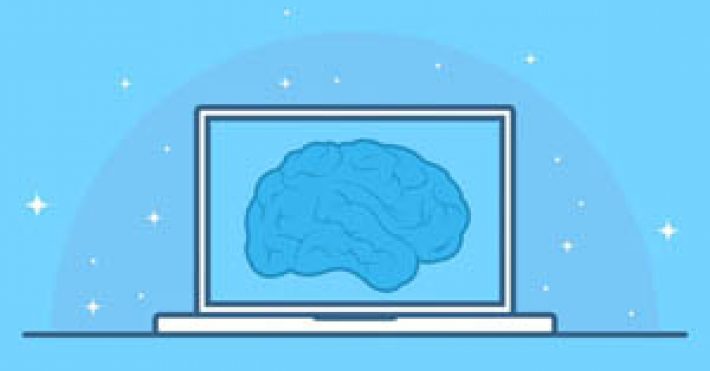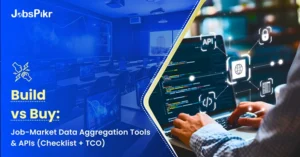Introduction To AI Integration:
AI Integration and Artificial intelligence (AI) has gradually extended its reach into all aspects of our lives, including our work. While applicant tracking systems (ATS) were previously the popular choice when it came to recruiting, changing demographics and a need to fulfill candidate expectations has led to the rise of newer technologies like AI, machine learning, and data mining. It has become easier in recent times to depend on AI to recruit, train, and monitor employee development. What it does is handle the more mundane aspects of a job, leaving room for creativity and effective problem-solving.
Recruiting via AI has become a common practice and one may find many recruiting software that is getting popular in the HR circuit. Many companies have embraced the concept and are now at the forefront of the AI revolution. According to a survey conducted by Deloitte, 42 percent of leaders believe AI to be the next new thing in the coming years and ready to embrace it. According to Scout Exchange, employers who use machine learning algorithms while recruiting report a decrease in time to fill by over 30 percent, an increase in the number of candidates by over 40 percent, and a reduction in the cost per hire by 30 percent.
Recruitment And Onboarding:
The most important thing when it comes to recruiting is getting the word out. Textio is an AI-powered solution that helps recruiters write job descriptions. It uses historical data from the company’s database and similar job listings from other companies to suggest changes in the job advertisement that the employee came up with. With Textio, small changes in the format and a different choice of words brings significantly more applications from interested candidates.
Engaging with candidates becomes another challenge with a high number of applications. Chatbots help tackle this problem and help reduce the time to hire while successfully helping a large number of candidates to complete the application process. Since they provide regular updates to candidates and keep them informed on the status of their applications, chatbots have become an important cog in the recruitment process. Mya uses machine learning and natural language processing (NLP) and looks after tasks such as sourcing, screening, scheduling, creating candidate profiles, and shortlisting prospective candidates.
Other such chatbots are Olivia and Montage that use natural language processing to handle the scheduling part of the recruitment process. Chatbots are not just helpful for prospective employees but new ones as well. One example is Unabot, a chatbot used by Unilever that uses natural language processing to address employees’ concerns in simple language. It provides suggestions on everything ranging from commutability to payroll issues.
How AI Integration Solves Issues Related To Jobs:
It is a difficult task to select the right candidate for any job. AI solves the problem by screening candidates before they even set foot in their place of work. Pre-screening of candidates via AI has become a common practice in companies that attract a large number of candidates. Pymetrics has a set of tools that uses games to assess the candidates before the interview stage. The cognitive skills and emotional features of the candidate are taken into account, and because of AI, biases based on their gender, socio-economic status, or race. A comparison of the candidates and existing employees are made through which a good fit for the company is sought out. In case the AI recognizes another role that the candidate would be better suited to, it recommends that to the candidate.
On-The-Job Training:
AI tools are first acquainted with the working styles of different employees in a company. They used to coach new employees or the existing ones by pointing out more efficient ways of performing a task. An example would be Chorus, a tool that analyzes sales calls and offers tips on cadence and messaging. To become more efficient, Chorus records all calls and keeps in check the statistics of each sales representative. It then provides tips to the rest on how to perform similar tasks more effectively.
Cogito combines AI with behavioral science and used in the field of customer service to provide better phone support to the employees. It monitors voice signals and suggests ways of improving the conversation with customers.
Skills are effectively transferred from one generation to another with the help of AI. The experience of an employee who is about to retire will not go to waste. AI will ensure that his skills could be used for the benefit of the rest. Honeywell uses augmented and virtual reality (AR/VR) with AI to study the work of existing employees so that it can pass it on to newly-hired employees.
Employees wear AR headsets while performing tasks. These help to track what the engineer does using image recognition technology. Which is then recorded and played back to new employees. Who can now understand the role they have to play within the company. The video imagery also provides the knowledge to build further AR tools. That can provide real-time suggestions when the engineers go on about their tasks. Making them aware of dangers or reminding them to carry out certain tasks when they are in a particular place.
The Future of AI Integration:
While there has been a development in the AI tools over the years. There is still a long way to go. People are wary of the relatively new technology due to many reasons. One of the reasons is a misconception that AI will eventually replace their human counterparts. However, it is not the entire replacement of employees but augmentation that is the next step; AI will help us perform our tasks more efficiently. PeopleDoc is one such tool that monitors employees and makes suggestions on how they can perform a specific task more efficiently. This is a robotic process automation (RPA). The sole purpose of AI is to take over the menial tasks and leaving more complex problems to humans.
Apart from this, AI recruitment solution providers agree that it tends to dismiss important issues. Such as data security, privacy, inclusion, and more. This is why the announcement of an Expert Advisory Board by HireVue was welcomed. A technology that could revolutionize aspects of work-life as we know it. It hampers by a few challenges and the development of ethical AI. It will certainly make it easier for people to embrace it. In a Deloitte report published in 2017, researchers acknowledged that with AI “the ‘essentially human’ aspects of work becoming more important”. AI is here to stay. And any company that wishes to create a niche for itself should make full use of it. Or lose out in the long run.
Various organizations rely on quality job data that they can use in their analysis to find the right candidate. This data will help the AI Integrated system that they have in place to find that candidate. This will help the AI integration system to understand the need and requirements of the job and churn better results.




